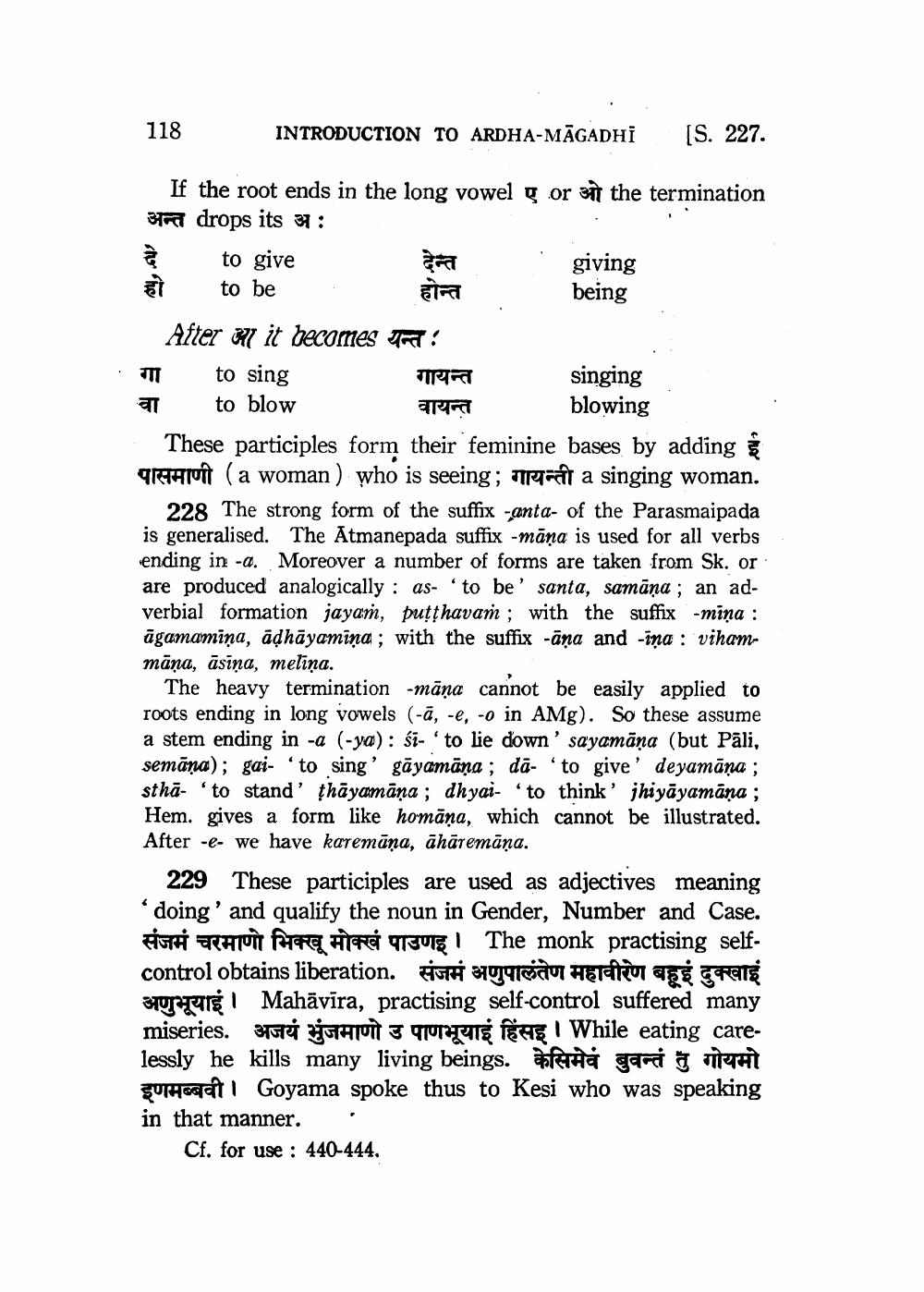________________
118
INTRODUCTION TO ARDHA-MĀGADHI
(S. 227.
होन्त
If the root ends in the long vowel g or at the termination 377 drops its 37: e to give
giving हो to be
being After it becomes sant? • गा to sing
गायन्त singing वा to blow
वायन्त blowing These participles form their feminine bases by adding qit (a woman who is seeing; Triat a singing woman.
228 The strong form of the suffix -anta- of the Parasmaipada is generalised. The Atmanepada suffix -māna is used for all verbs ending in -a. Moreover a number of forms are taken from Sk. or are produced analogically : as- 'to be' santa, samāna ; an adverbial formation jayam, putthavam ; with the suffix -miņa : āgamamīņa, ādhāyamiņa; with the suffix -āņa and -iņa : vihammāna, āsiņa, meliņa.
The heavy termination -māņa cannot be easily applied to roots ending in long vowels (-ā, -e, -o in AMg). So these assume a stem ending in -a (-ya): śî-' to lie down' sayamāņa (but Pāli, semāna); gai- 'to sing' gāyamāna ; dā- 'to give' deyamāņa ; sthā- 'to stand' thāyamāna; dhyai- 'to think' jhiyāyamana; Hem. gives a form like homāņa, which cannot be illustrated. After -e- we have katemāņa, āhāremāņa.
229 These participles are used as adjectives meaning * doing' and qualify the noun in Gender, Number and Case. संजमं चरमाणो भिक्खू मोक्खं पाउणइ। The monk practising selfcontrol obtains liberation. Hanguroidut her ass rais Burr Mahāvīra, practising self-control suffered many
miseries. अजयं भुंजमाणो उपाणभूयाइं हिंसइ। While eating carelessly he kills many living beings. केसिमेवं बुवन्तं तु गोयमो SUTHocati Goyama spoke thus to Kesi who was speaking in that manner.
Cf. for use : 440-444.




